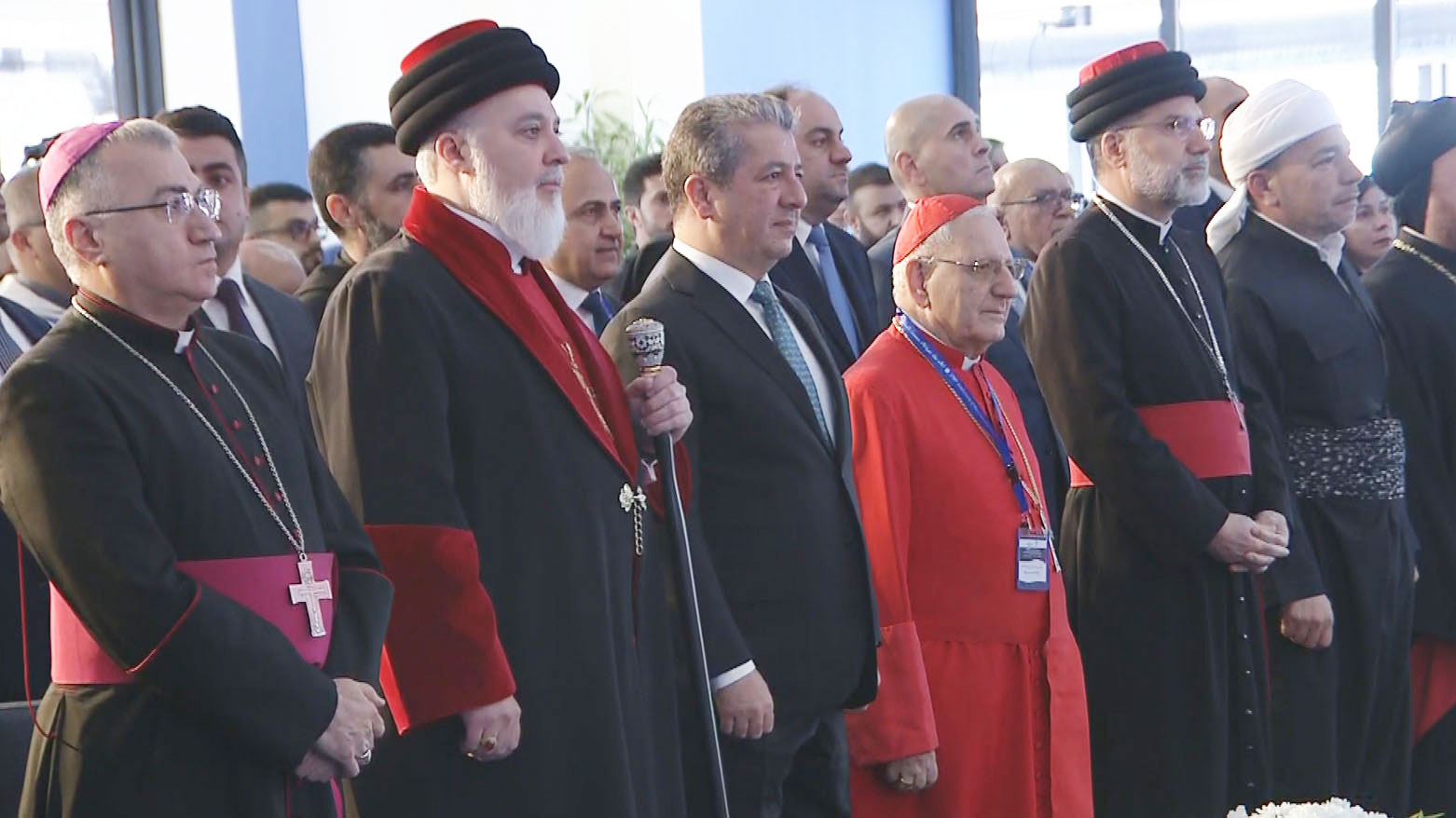Kurdistan Region Hosts 1700th Anniversary Conference of the Council of Nicaea
The Kurdistan Region hosted the 1700th-anniversary conference of the Council of Nicaea in Erbil, with PM Masrour Barzani and regional Christian patriarchs highlighting themes of unity and interfaith coexistence.

ERBIL (Kurdistan24) – With the presence of Kurdistan Region Prime Minister Masrour Barzani, the academic conference commemorating the 1700th anniversary of the Council of Nicaea began in Erbil on Saturday. The event, regarded as one of the most significant in Christian history, brings together prominent patriarchs and clergy from Iraq and the Middle East to reaffirm the values of unity and shared faith.
The conference marks a historic milestone, recalling the original Council of Nicaea convened in 325 CE, when 318 Christian bishops met at the city of Nicaea in the Roman Province of Bithynia, at the instigation and under the direction of Constantine I (`The Great') to discuss matters which were disturbing the Church, and thus Constantine's empire. Seventeen centuries later, the commemoration in Erbil highlights the council’s enduring legacy and the profound impact it continues to have on Christianity.
According to the program, Prime Minister Barzani is scheduled to deliver a keynote speech, while leading Christian patriarchs will present addresses reflecting on the relevance of Nicaea in today’s world. Organizers emphasized that the gathering aims to spread the message of unity, deepen interfaith understanding, and highlight the council’s influence on shaping modern Christian thought.
The symbolism of the conference logo was also presented in detail, underscoring its theological and cultural meaning. The tree represents humanity in the Bible, known by its fruits, symbolizing the Church as a community of believers rooted in history, culture, and apostolic mission. The cross at the center embodies Christ in His true person, expressing the salvific nature of Christianity.
The circular form of the cross signifies perfection, an eternal goal of the earthly Church in its evangelistic mission. The roots of the tree symbolize continuity and the power of life sustained through faith in Christ, who nourishes all branches of the Christian community.
The sun in the logo reflects the eschatological dimension of Christianity, signifying the East as the direction of Christ’s promised second coming. Its light represents Christ Himself, the light of the world, shining upon the universal Church.
The Erbil conference is described as a pivotal event where patriarchs and clergy come together with the purpose of spreading a message of unity, reaffirming shared values, and promoting coexistence. Organizers highlighted that its central aim is to revive the spirit of the Council of Nicaea and emphasize its significance in the modern era, particularly in a region where Christianity continues to face challenges but also plays a vital role in cultural and spiritual life.
By hosting such a gathering, the Kurdistan Region reaffirms its position as a center for dialogue, pluralism, and respect for religious diversity. The event not only underscores the importance of historical continuity but also projects a message of hope for greater understanding among faith communities.